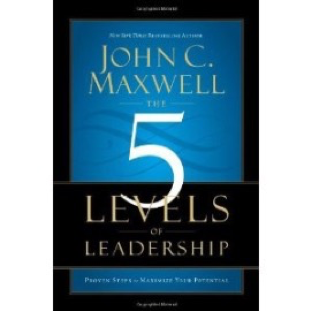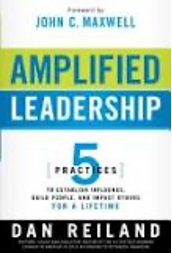Friday, April 7, 2023
Download Slides Here
In this course we’ll explore how to help your volunteers discover and reach their full potential. We’ll cover the basics of inviting people to step into meaningful ministry (recruiting), how to select an apprentice, giving a framework for an effective one on one meeting, helping someone develop a personal growth plan, giving away meaningful ministry (delegation), why being a hero maker is better than being a hero, and ultimately how to leave behind a leadership legacy through the people you’re pouring into. Whether you’re a new leader or an old pro, we believe this course will help you better develop the talent within those you lead.
Why is Leadership so essential in the church?
Bean Bag Story

How do we grow our church?
Focus on attendance vs focusing on leaders
Who will lead?
In the book Spiritual Leadership by J. Oswald Sanders he writes:
Real leaders are in short supply. Constantly people and groups search for them. A question echoes in every corner of the church—“Who will lead?” throughout the Bible, God searches for leaders too:
The Lord has sought out a man after his own heart and appointed him leader of his people (1 Samuel 13:14).
Go up and down the streets of Jerusalem, look around and consider, search through her squares. If you can find one person who deals honestly and seeks the truth, I will forgive this city. (Jeremiah 5:1)
I looked for a man among them who would build up the wall. (Ezekiel 22:30)
The Bible shows us that when God does find a person who is ready to lead, to commit to full discipleship, and take on responsibility for others, that person is used to the limit. Such leaders still have shortcomings and flaws, but despite those limitations, they serve God as spiritual leaders. Such were Moses, Gideon, and David. And in the history of the church, Martin Luther, John Wesley, Adoniram Judson, William Carey, and many others.
To be a leader in the church has always required strength and faith beyond the merely average. Why is our need for leaders so great, and candidates for leadership so few? Every generation faces the stringent demands of spiritual leadership, and most unfortunately turn away. But God welcomes the few who come forward to serve.
Law of the lid
John Maxwell has written extensively on the topic and believes that everyone has the ability to raise their “leadership lid”. Every leader has a lid and the law of the lid is that you don’t attract other leaders who are higher in their leadership than you are. He uses an arbitrary scale of 1 to 10 in which 1 is the lowest and 10 is the highest.
If you have a leadership lid of 6, you probably won’t be able to attract and empower leaders with a lid of 7 or 8. Why? Because it’s hard to lead someone past the point that you yourself are at. So, someone with a lid of 6 should try to increase their lid to 7, 8, or beyond so they can attract and build up higher level leaders. This takes hard work but it is possible!
Leadership is a skill that you can work on and develop!
5 Levels of Leadership
John C. Maxwell’s 5 Levels of Leadership are:
1. Position - People follow be-cause they have to.
2. Permission - People follow because they want to.
3. Production - People follow because of what you have done for the organization.
4. People Development - People follow because of what you have done for them person-ally.
5. Pinnacle - People follow be-cause of who you are and what you represent

Bad Recruiting
2x +y = z
I would look for…
Random people in the lobby.
People I know who aren’t busy.
People like me.
Every leader is BUSY. If not busy, not a leader. –Ben Snyder
Don’t you feel guilty asking already busy people to give of themselves?
…if there is a job opening available, research has shown that a man will apply for that job if he is 60 percent confident that he can perform the job well. He knows he can likely figure out the other 40 percent as he goes. On the other hand, if a woman looks at a potential job opening, she will wait until she is 100 percent sure that she can perform the job well even before applying. –Kadi Cole, Developing Female Leaders
What is the progression we must follow when raising up a new leader?
(Taken from Amplified Leadership)

1. Establish a Relationship
-Connect at the Heart
-Appreciate People for Who They Are
2. Engage a Follower
-Encourage People to Build Them Up
-Inspire People to Follow the Vision
3. Embrace a Team Member
-Invite Individuals into Meaningful Ministry
-Equip Your Team for Ministry Success
4. Coach an Apprentice
-Select the Best Potential Leaders
-Include Emerging Leaders
5. Mentor a New Leader
-Develop New Leaders
-Empower Effective Leaders to Realize Their Potential
Recruiting vs Inviting
Dan Reiland writes about this in his book Amplified Leadership, (p. 90)
The word recruit is often used to describe the process of bringing new people onto a team. It’s a strong word that includes the idea of getting the job done. To be blunt, it means getting a yes or closing the deal. Recruit is a good word, but to be perfectly candid, I struggled over which term is better, invite or recruit. I have concluded that invite is a better term because it communicates our true intent. And it represents well the relational nature of leadership in ministry. But anyone who has ever been tasked with finding volunteers to serve on a team knows the invitation contains elements very similar to recruiting.
So what stops us from being an effective recruiter/inviter? The answer often lies within us!
Dan continues…
In the church, our goal is to accomplish a kingdom cause and develop lasting relationships. But leaders do close deals, or we’d get nothing done. Being honest with yourself about that fact is a healthy place to start developing your ability to draw new leaders and volunteers.
Questions to ask yourself:
Am I a control freak?
Am I a perfectionist?
Do I procrastinate?
Am I a people pleaser?
Do I fear being turned down?
Do I fail to see the potential in people?
Equipping vs Developing
Both are vital but they are not the same!
“Equipping prepares someone to accomplish a specific ministry function or task. Developing invests in someone primarily for his or her personal growth.”
Equipping is transactional while developing is transformational.
Equipping changes the ministry. Developing changes the person.
Reiland, Dan. Amplified Leadership: 5 Practices to Establish Influence, Build People, and Impact Others for a Lifetime (p. 110). Charisma House. Kindle Edition.
Effective Equipping
I explain, you listen
I do, you watch
I do, you help
You do, I help
You do, I watch
You own it but I check in
How to Select an Apprentice
Dan writes:
If you’re anything like me, you’ll be encouraged to know that Jesus did not choose leaders because they were perfect. He looked for people with potential and who would help Him fulfill His purpose on the earth. Ultimately, this is what should drive us as we select potential leaders.
3 Mistakes to avoid when selecting an Apprentice:
1. Making a decision based on politics
2. Underestimating a person’s capacity
3. Making assumptions about a person
How might you rate the potential leader in the following areas?
The 4 C’s
Character
Commitment
Competency
Chemistry
Will they follow?
Will they serve?
Will they learn?
Will they sacrifice?
Will they be honest?
Effective One on One Meetings
People don’t quit jobs, they quit bosses.
Often the key factor that people cite when leaving a job is, “My manager didn’t really care about me as a person.”
Why one on ones are so valuable
One on ones give the opportunity for direct reports to talk about what they need. The manager should seek to answer the question, “how can I help”? Time is really for the direct report to learn, problem solve, and prioritize life/work.
Employee needs to know that there will be an upcoming time that they’ll have the boss’s undivided attention. Allows both parties to bucket items and efficiently communicate. This builds trust and understanding.
Best Practices
Supervisor called the meeting, burden of planning is on them.
Better to connect in person if at all possible. Helps to break down walls and give context.
No dumb questions! Not everyone feels like they can ask questions in group settings or address the things they are confused about. In one on one meetings you can talk about, “What’s really going on”
The supervisor can also give additional context about decisions and some of the behind the scenes info if appropriate.
Structuring One on Ones
In an effective one on one meeting, the goal should be to get beyond the surface level “how is the job going” and to get to a deeper place to address, “How are you really doing?”
You can use a 1-10 scale for the following areas…
How are you doing… Spiritually, Relationally, Physically, Mentally, Recreationally, Financially, Vocationally?
You can also ask questions like:
What are the top goals you’re working on?
What are you doing in the area of personal development? How are you investing in yourself?
Whom are you intentionally developing right now and how?
In what areas do you feel stuck and how can I help?
How can I be praying for you this week?
Final thoughts on One on One meetings:
Keep them…
Regular – Set up a predictable, regular rhythm. This provides a predictable opportunity for your subordinate to bring you issues and concerns. It also builds trust.
Focused – Step into one on ones with a clear direction and purpose. Put some thought and planning into what you’d like to discuss. Have a set start and end time.
Flexible – If the conversation goes in a slightly different direction than what you planned, that’s ok! Don’t be so rigid that you’re not able to discuss what’s really going on with him or her.
Personal but Professional – It’s ok to talk about one’s personal life, but make sure boundaries aren’t crossed. Never council someone of the opposite sex about marriage issues or dating. Leave this to the professionals.
Developing a Personal Growth Plan
Take a personal inventory… Ask yourself…
Am I honest about my goals?
Am I a control freak?
Am I a perfectionist?
Do I procrastinate?
Am I fearful of being turned down?
Do I fail to see the potential in people?
-From Dan Reiland’s Amplified Leadership, (pg. 89-92)
Your personal development plan should include but is not limited to:
Books you want to read this year
Monthly Leadership Podcasts/Blogs you will listen/read
Identify Mentors- Spiritual, Leadership, Marriage
Leadership Conferences you’ll attend (in person or online)
Personality Profile tests you want to complete to become more self-aware
Areas of Improvement based on honest feedback from those closest to you
Dress and act for the job you want, not the job you have. –Batman
Hero vs Hero Maker
We all see the power in being the hero – David
But few see the potential in being a hero maker – Samuel

Let’s say over the course of 30 days, we run an experiment…
I give Person #1 $1 and each day I add progressively $1 more. So on day #2 I give them $2 and on day 3 I give them $3, etc. And the end of the 30 days they have…
$465 dollars!
Now over the course of the next 30 days, we do the same thing but instead of adding $1 more, we use multiplication. Give you 2 x, then 3x, then 4x, etc… how much do you think you’ll have at the end of the 30 days?
$265,252,859,812,191,000,000,000,000,000,000
More than two hundred sixty-five nonillion!
As far as impact goes, there is no comparison. Being a hero maker vs hero is multiplication compared to addition. But it requires death of the ego. It means you don’t get the satisfaction of saying “I built this with my hands” or “I made this happen”!
Jesus’ ministry followed this principle. Instead of focusing on the size of the crowds, Jesus focused on develop of his disciples.

Leaving a Leadership Legacy
2 Timothy 2:2 NLT - You have heard me teach things that have been confirmed by many reliable witnesses. Now teach these truths to other trustworthy people who will be able to pass them on to others.
Who is your Paul? Do you have a mentor or several mentors? Who is better than you in an area that really matters?
Who is your Timothy? Who are you actively pouring into with the goal of replacing yourself? How are you bringing them along and giving important pieces of ministry away?
Chris Hodges, “Every pastor needs a pastor who is spiritually shaping him or her.”
“Your greatest contribution to the kingdom of God may not be something you do but someone you raise.” –Andy Stanley